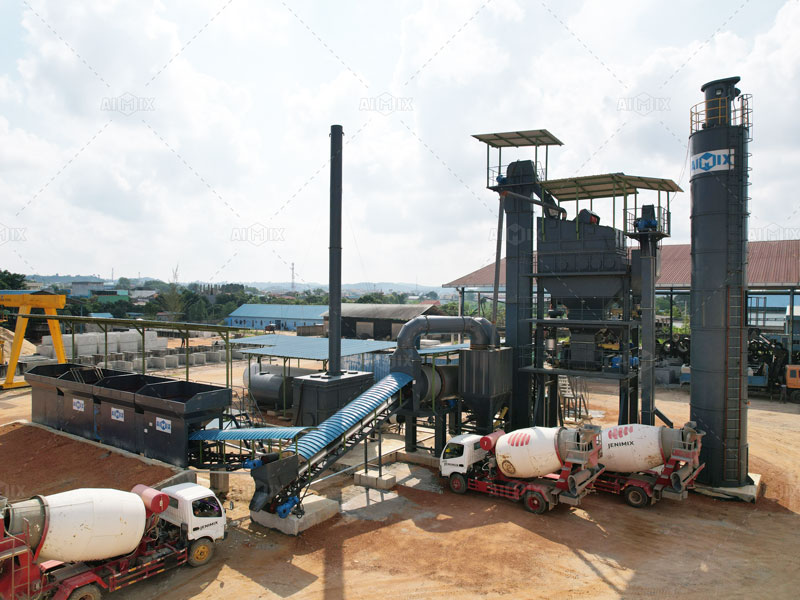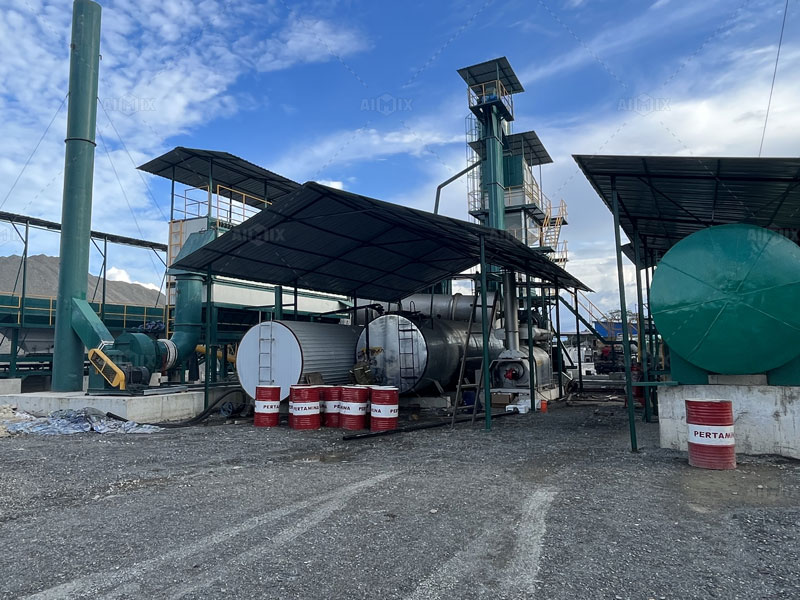Asphalt plants play a crucial role in the construction industry, providing the essential material for roads, highways, and infrastructure projects. However, traditional asphalt production can have significant environmental impacts, from air pollution to resource depletion. To address these challenges, adopting sustainable practices in hot mix asphalt (HMA) production is essential. This article explores sustainable approaches for your asphalt plant, focusing on reducing environmental footprints while maintaining operational efficiency and product quality.
Understanding the Importance of Sustainability in Asphalt Production
Hot mix asphalt plants are central to infrastructure development, but their operation can generate emissions and consume resources. Recognizing the environmental impact of conventional practices, the industry is increasingly embracing sustainable solutions. Sustainable asphalt production involves minimizing energy consumption, reducing emissions, conserving resources, and enhancing recyclability.
Energy-Efficient Operations
Optimizing energy usage is a cornerstone of sustainable asphalt production. Utilizing modern technologies such as energy-efficient burners, thermal insulation, and process automation can significantly reduce energy consumption. Additionally, incorporating renewable energy sources like solar or wind power can further enhance the sustainability of hot mix asphalt plants(planta de asfalto en caliente).

Implementing Recycling and Reuse Practices
Recycling asphalt materials is a key strategy for sustainability in HMA production. Reclaimed Asphalt Pavement (RAP) can be recycled and reused in new asphalt mixes, reducing the need for virgin materials and lowering carbon emissions. Integrating RAP into production processes not only conserves resources but also enhances the performance and durability of asphalt pavements.
Investing in Advanced Emission Control Systems
Emissions from asphalt plants(plantas de aglomerado) can impact air quality and contribute to environmental pollution. Installing advanced emission control systems, such as baghouses, cyclones, and scrubbers, helps mitigate the release of harmful pollutants into the atmosphere. These technologies capture particulate matter and other pollutants, ensuring compliance with environmental regulations while promoting cleaner air.

Prioritizing Sustainable Materials and Practices
In addition to recycling asphalt materials, incorporating sustainable aggregates and additives can further enhance the environmental profile of asphalt mixes. Using locally sourced aggregates, reclaimed aggregates, or recycled tire rubber can reduce the carbon footprint of asphalt production while supporting circular economy principles. Moreover, adopting eco-friendly practices such as dust suppression and stormwater management minimizes environmental impacts during asphalt mixing plant(plantas mezcladora asfalto) operation.
Conclusion
Asphalt plants are indispensable for infrastructure development, but their environmental footprint can be significant. Embracing sustainable practices is paramount to mitigating these impacts and ensuring the long-term viability of asphalt production. By prioritizing energy efficiency, recycling and reuse, advanced emission control, and sustainable materials, asphalt plants can contribute to a more sustainable construction industry. Investing in sustainable solutions not only benefits the environment but also enhances operational efficiency and competitiveness. As the demand for infrastructure grows, adopting sustainable practices is not just a choice but a necessity for the future of hot mix asphalt production.
Asphalt plants for sale(Planta asfalto en venta) now offer advanced features tailored to sustainability, making it easier for operators to implement environmentally friendly practices without compromising performance. By leveraging these technologies and approaches, asphalt producers can pave the way for a greener, more sustainable future.